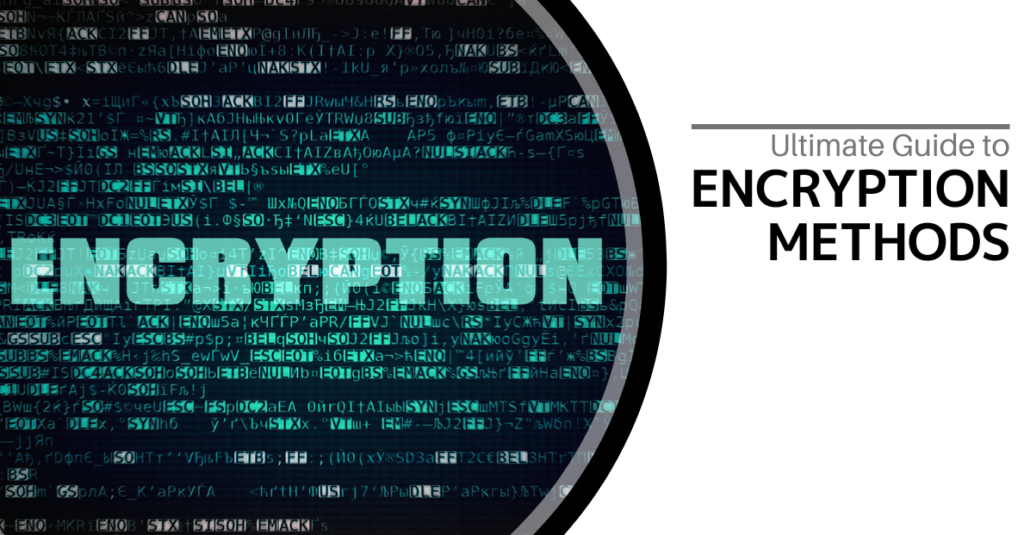Encryption is a method of securing information that converts readable data into secret code, and only the right key can decode it. IPM Computers’ latest blog is an essential guide that will help you understand different encryption methods.

What is Encryption?
Encryption acts as a secret language that transforms readable text into unreadable text, known as ciphertext. Only individuals with the correct key can decode this ciphertext back into its original form, called plaintext.
Why Do We Use Encryption?
Encryption safeguards information by protecting it from unauthorized access. It ensures data remains safe from hackers, which is crucial for privacy and security.
How does Encryption Work?
Encryption relies on algorithms and keys. An algorithm, which is a set of problem-solving rules, works alongside a key, a unique password-like code, to unlock encrypted messages.
Symmetric vs Asymmetric Encryption
There are two main types of encryptions: symmetric and asymmetric.
- Symmetric encryption uses the same key for both encoding and decoding messages. While it operates quickly, it becomes less secure when multiple users share the key.
- Asymmetric encryption employs two keys: a public key for encryption and a private key for decryption. This method offers stronger security since only the private key can unlock the encrypted message.
What Are Some Common Encryption Methods?
There are numerous encryption methods in use today. Here are some of the most common ones:
1. AES (Advanced Encryption Standard)
AES, a symmetric encryption method, stands out as one of the most secure techniques. It uses keys of 128, 192, or 256 bits, with longer keys providing greater security.
2. RSA (Rivest-Shamir-Adleman)
RSA, an asymmetric encryption approach, relies on public and private keys. It is widely used for secure data transmission.
3. DES (Data Encryption Standard)
DES, once a popular symmetric method, uses a 56-bit key. However, it has largely been replaced by AES due to its weaker security.
4. ECC (Elliptic Curve Cryptography)
ECC, an asymmetric method, delivers robust security with smaller key sizes. Its efficiency makes it a popular choice for mobile devices.
How Do We Use Encryption in Everyday Life?
Encryption plays a major role in our daily life routines.
1. Online Shopping
Encryption protects payment information during online transactions, shielding credit card details from hackers.
2. Messaging Apps
Apps like WhatsApp use encryption to ensure only the sender and recipient can read messages.
3. Email Security
Many email platforms encrypt messages, preventing unauthorized access to private communications.
What Are the Challenges of Encryption?
Encryption has many benefits, but it also faces challenges.
1. Key Management
Storing and managing encryption keys securely can be difficult. Losing a key often results in losing access to the encrypted data.
2. Performance Issues
Encryption can slow down systems because of the processing power required to encrypt and decrypt data.
How Can You Stay Safe with Encryption?
You can take some steps to securely use encryption.
1. Use Strong Passwords
Choose complex passwords for accounts and devices to make hacking more challenging.
2. Keep Software Up-to-Date
Regular updates help protect against vulnerabilities in outdated software.
3. Use Caution with Public Wi-Fi
Avoid sensitive transactions on public Wi-Fi unless you encrypt your internet connection with a VPN.
Ready to Secure Your Data?
Encryption helps protect your personal information from threats. Understanding different methods can help you choose the right one for your needs.
Contact our team of IT professionals today to help secure your data!
Phone: (910) 463-4299
Email: [email protected]
Our Website: ipmcomputers.com





